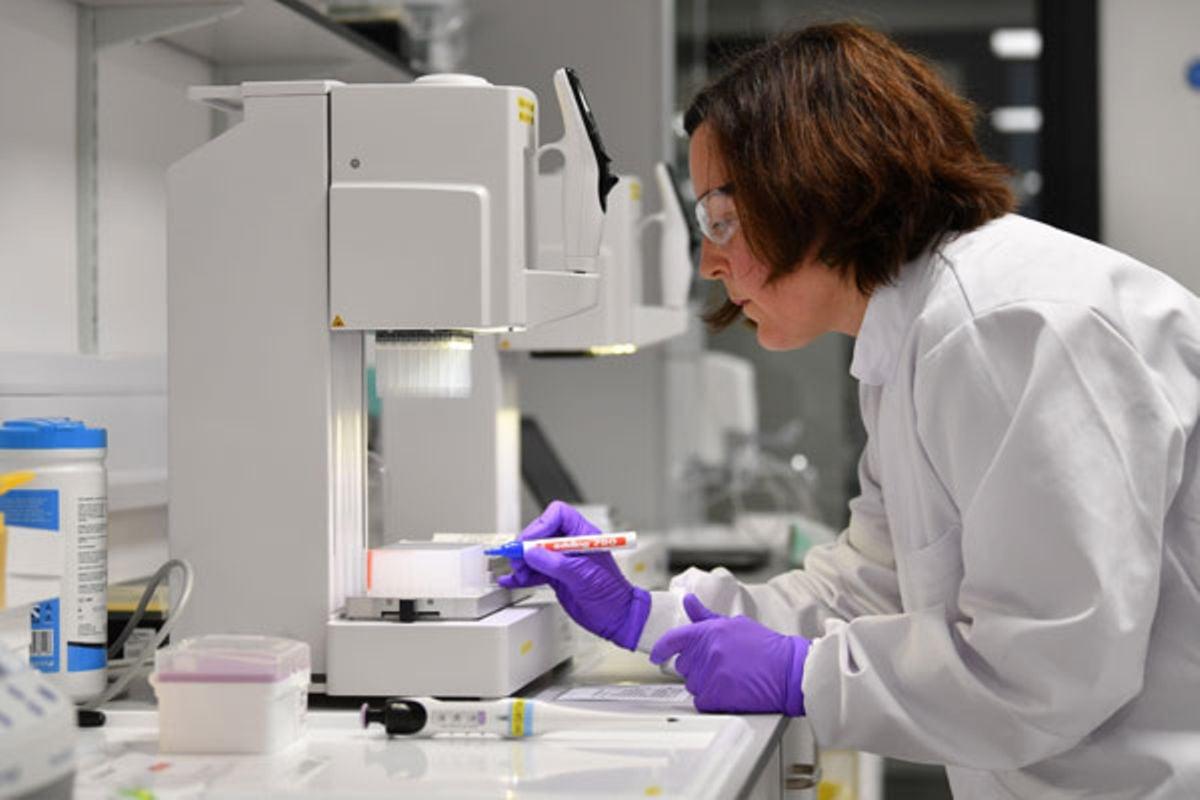Clinical Mass Spectrometry: A Cutting-Edge Technique Reinventing Disease Diagnosis

Mass spectrometry is an analytical technique that is used to measure the mass-to-charge ratio of ions. At its simplest, a mass spectrometer contains three main components: an ion source, a mass analyzer, and a detector. In the ion source, molecules in a sample are ionized and converted to gas-phase ions. The mass analyzer separates these ions based on their mass-to-charge ratio. Finally, the detector measures the abundance or number of ions at each mass-to-charge ratio, producing a mass spectrum. This spectrum is a unique molecular fingerprint that can be used to identify unknown compounds within a sample.
Applications in Clinical Analysis
Clinical Mass Spectrometry [RD1] has emerged as a powerful tool for clinical analysis due to its high sensitivity, accuracy and specificity. Some key applications of mass spectrometry in clinical diagnosis and monitoring include:
- Newborn Screening: Mass spectrometry is commonly used for newborn screening of over 30 genetic disorders, including phenylketonuria, congenital hypothyroidism and galactosemia. Dried blood spots are collected and analyzed to detect abnormal levels of biomarkers.
- Therapeutic Drug Monitoring: Monitoring drug levels in patients' blood or urine is essential for personalized medication management. Mass spectrometry is routinely used to quantify therapeutic drugs and their metabolites. This helps optimize dosing and avoid potential toxic side effects.
- Metabolomics Profiling: Detecting small molecule metabolites in biofluids provides insights into a patient's metabolic state. Mass spectrometry-based metabolomics is being applied for biomarker discovery in various diseases like cancer, cardiac disorders and neurological conditions.
- Proteomics Analysis: The analysis of proteome-wide changes associated with disease progression and drug response has numerous clinical applications. Mass spectrometry coupled with liquid chromatography enables large-scale, precise quantification of proteins in clinical samples.
- Microbial Identification: Identifying pathogenic bacteria, viruses or fungi in clinical specimens assists in accurate diagnosis of infections. Mass spectrometry-based tools facilitate rapid microbial identification, often achieving results 1-2 days faster than conventional approaches.
- Toxicology Testing: Mass spectrometry is the predominant technique used for drug abuse testing and clinical toxicology analyses. It enables definitive identification and measurement of intoxicants, drugs of abuse and their metabolites from various biological matrices.
Mass Spectrometry-Based Biomarker Discovery
A major focus area in clinical mass spectrometry is the discovery of novel disease biomarkers. Compared to traditional analytical techniques, mass spectrometry offers higher selectivity, sensitivity and multiplexing capabilities for biomarker research. Some promising applications include:
- Cancer Biomarkers: Mass spectrometry enables comprehensive molecular profiling of proteins, peptides, metabolites and other biomolecules in bodily fluids or tissues of cancer patients. Alterations in specific molecules are being explored as potential signatures for early cancer detection, diagnosis, prognosis and therapeutic monitoring.
- Neurological Disorder Biomarkers: Disorders like Alzheimer's disease, Parkinson's disease, multiple sclerosis and various dementias lack reliable biomarkers for early detection and diagnosis. Mass spectrometry-based studies are characterizing changes in cerebrospinal fluid, blood and urine specimens to uncover distinct molecular patterns associated with these conditions.
- Cardiovascular Disease Biomarkers: Clinical spectrometry facilitates analysis of proteins, lipids and metabolites in blood specimens from cardiovascular disease patients. Altered signatures are being identified to predict risk, monitor disease progression and treatment response for conditions like atherosclerosis, heart failure and myocardial infarction.
- Biomarkers for Infectious Diseases: Mass spectrometry enables rapid discovery of host response markers for viral, bacterial and parasitic infections. Characteristic changes in immunological or metabolic pathways examined at the molecular level may serve as biomarkers for determining disease status, severity and patient outcomes.
Role of Mass Spectrometry in Clinical Research
In addition to direct clinical applications, mass spectrometry plays an indispensable role in advancing biomedical research to understand disease mechanisms and develop improved diagnostics, prognostics and therapies. Key research areas where clinical mass spectrometry makes significant contributions include:
- Proteomic Profiling of Clinical Samples: Large-scale analysis of the proteome using mass spectrometry generates an wealth of information on perturbations in protein expression and post-translational modifications associated with diseases. This accelerates identification of novel therapeutic targets and protein biomarkers.
- Metabolomic Studies: Global metabolic profiling of biofluid and tissue extracts via mass spectrometry pinpoints disrupted metabolic pathways under pathological conditions. It enhances insight into disease pathophysiology and facilitates development of metabolic signatures for precision medicine approaches.
- Pharmaceutical Analysis: Mass spectrometry is extensively applied in pharmaceutical research and development for identification and quantification of drug candidates, metabolites and degradation products during preclinical and clinical evaluation stages. This ensures drug quality, safety and efficacy.
- Lipidomics Investigations: Lipids play fundamental roles in human health and disease. Clinical mass spectrometry-based lipidomics enhances understanding of lipid regulation in various disease contexts like obesity, diabetes and cardiovascular disorders.
Clinical spectrometry is revolutionizing disease diagnosis, management and research by enabling comprehensive molecular analysis from physiological samples. Its high sensitivity, specificity and multiplexing capabilities contribute significantly towards realization of precision medicine approaches. With continuous technical advancements, mass spectrometry is likely to transform healthcare by facilitating early detection, more accurate diagnosis and personalized treatment of various medical conditions.
Get More Insights On, Clinical Mass Spectrometry
About Author:
Ravina Pandya, Content Writer, has a strong foothold in the market research industry. She specializes in writing well-researched articles from different industries, including food and beverages, information and technology, healthcare, chemical and materials, etc. (https://www.linkedin.com/in/ravina-pandya-1a3984191)
Catégories
Lire la suite
Global Collimator Market Overview Maximize Market Research is a leading market research firm based in Pune that has published a detailed analysis of the Global Collimator Market. The updated Global Collimator market reports include the market size data for the year 2023 and provide an estimated value for 2030, and a CAGR forecast has been made for the period from 2024...

Online casinos have gained significant popularity across the United States, and Georgia is no exception. As the state looks toward the future of gaming and digital entertainment, online casinos are emerging as a preferred choice for many residents. With the ability to play a wide range of games from the comfort of home, Georgia players are now enjoying an exciting and secure online...



